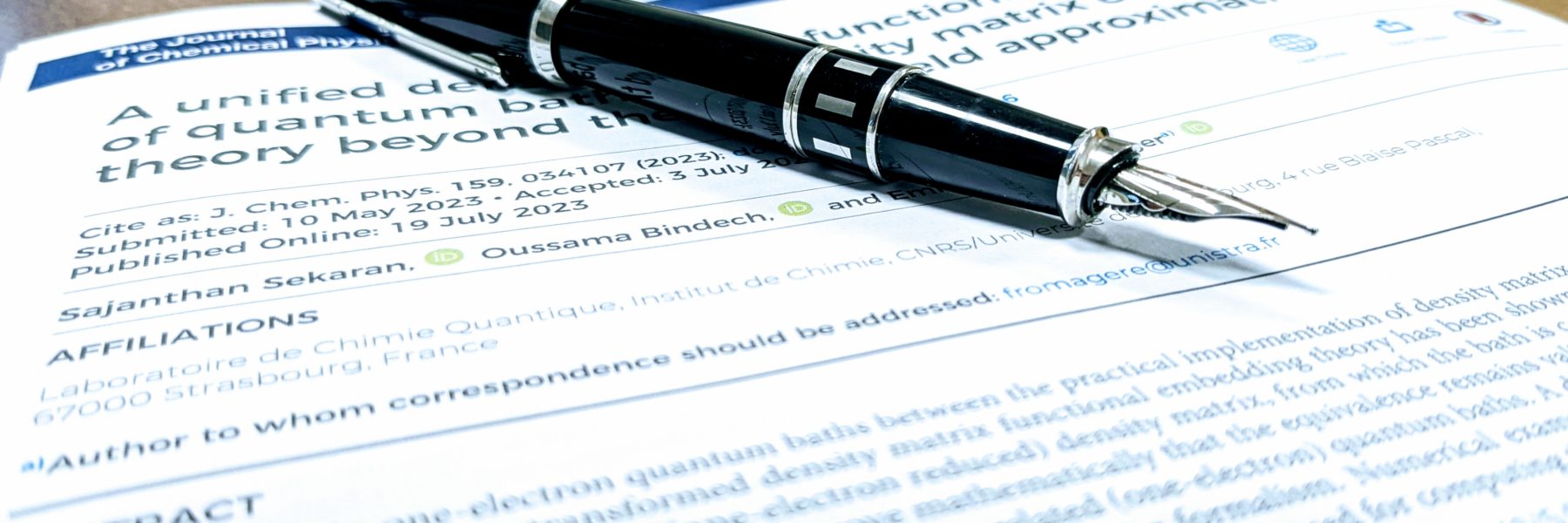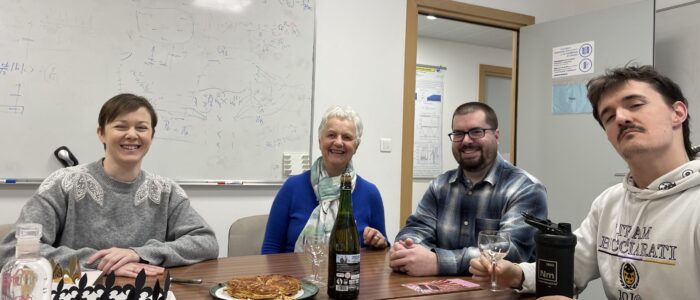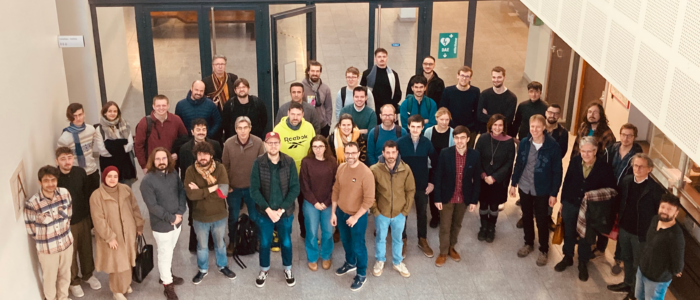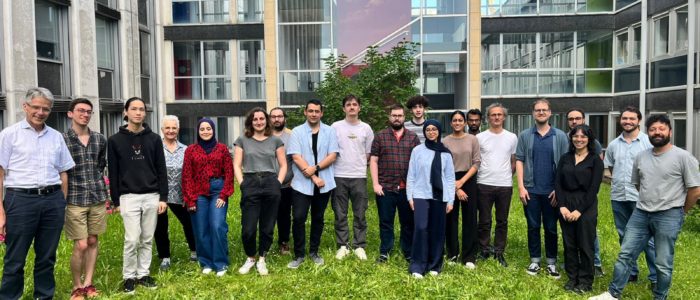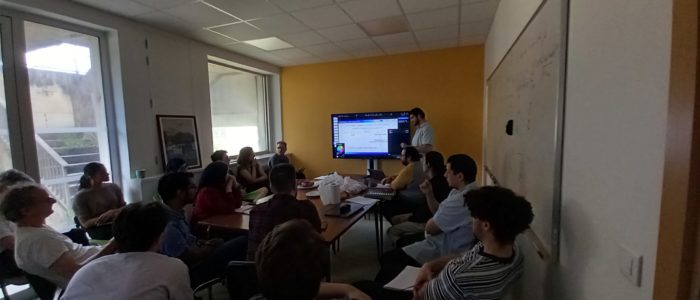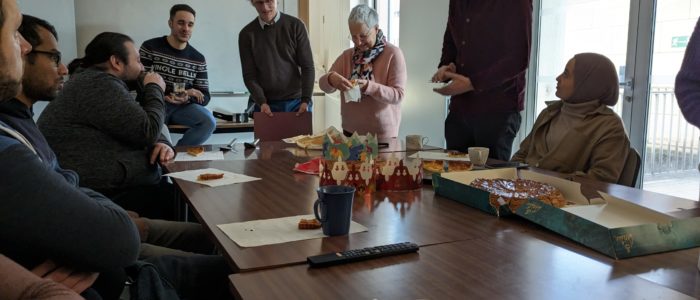Lucie Pepe (LCQS), Saad Yalouz (LCQS) and coworker published a new paper, “Optimized excitonic transport mediated by local energy defects: Survival of optimization laws in the presence of dephasing”, in Physical Review E : 10.1103/PhysRevE.109.014303
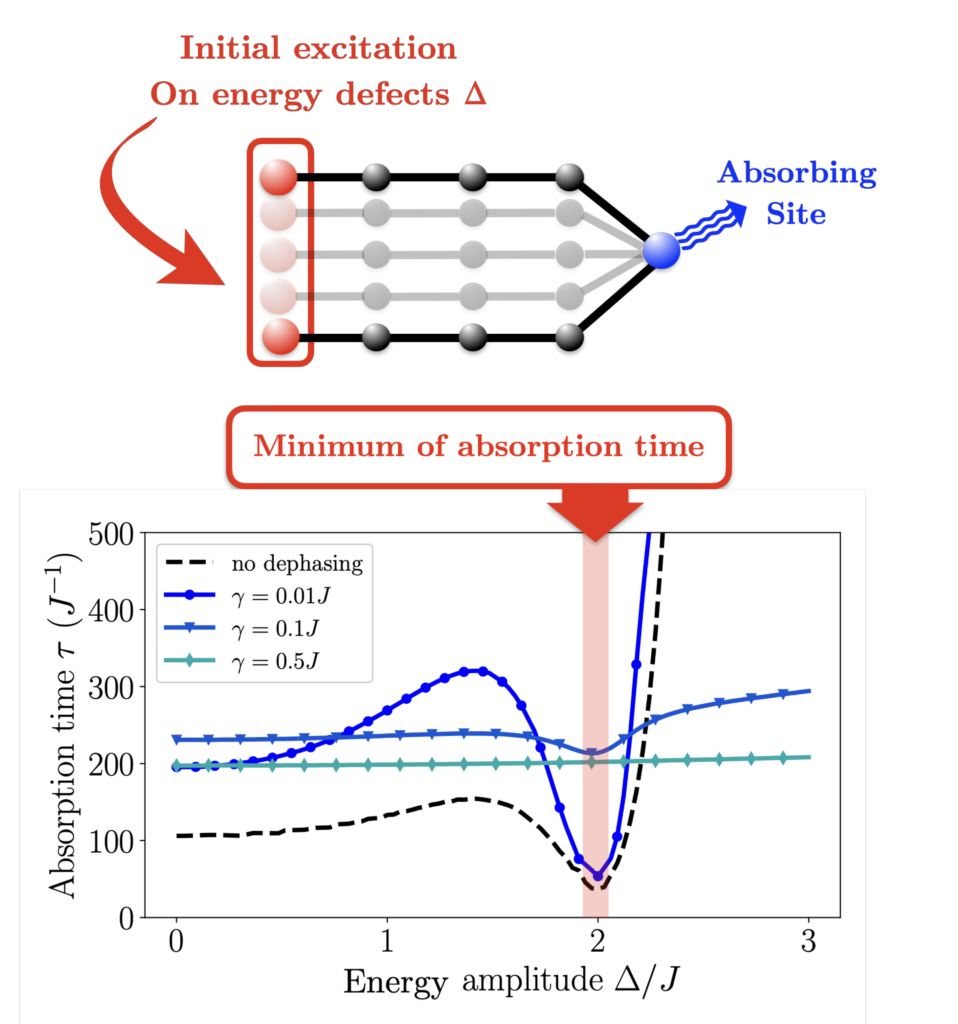
In an extended star with peripheral defects and a core occupied by a trap, it has been shown that exciton-mediated energy transport from the periphery to the core can be optimized [S. Yalouz et al., Phys. Rev. E 106, 064313 (2022)]. If the defects are judiciously chosen, then the exciton dynamics is isomorphic to that of an asymmetric chain and a speedup of the excitonic propagation is observed. Here we extend this previous work by considering that the exciton in both an extended star and an asymmetric chain is perturbed by the presence of a dephasing environment. Simulating the dynamics using a Lindblad master equation, two questions are addressed: How does the environment affect the energy transport on these two networks? and Do the two systems still behave equivalently in the presence of dephasing? Our results reveal that the timescale for the exciton dynamics strongly depends on the nature of the network. But quite surprisingly, the two networks behave similarly regarding the survival of their optimization law. In both cases, the energy transport can be improved using the same original optimal tuning of energy defects as long as the dephasing remains weak. However, for moderate or strong dephasing, the optimization law is lost due to quantum Zeno effect.


